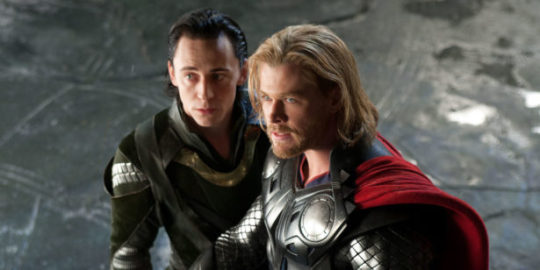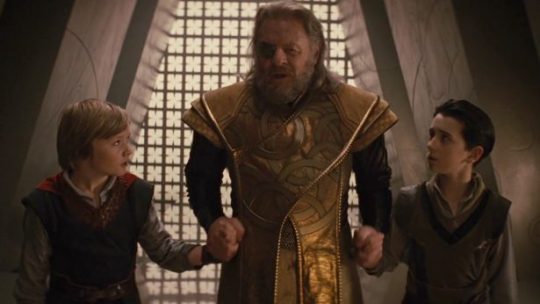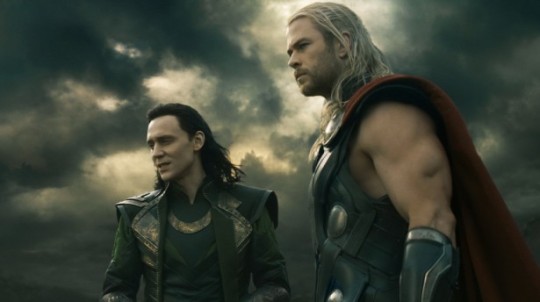#because this kind of Eldest Daughter/I Must Fix Everything syndrome
Note
You're not wrong about anything wrt cost of flying, but man is it bracing to wake up to a reminder that I can never ethically see most of my loved ones in-person again.
hmm. i think this is also the wrong way to think about it. flying is not a sin. being in some indirect way responsible for a certain amount of carbon emissions does not Taint Your Soul. and absolutist frameworks for this kind of thing are not helpful to anybody, least of all the people who actually might already be contributing to fixing problems like this through positive behaviors, like voting or political organizing.
the problem with carbon emissions is that they're a difficult to solve collective action problem, where a lot of the incentives point in a harmful direction, not that they are Fundamentally Immoral, and i think that's an important distinction to make, because i think a handful of semi-scrupulous individuals flagellating themselves and depriving themselves of things that would make them happy in the long run has no real effect on big problems like this. you not seeing your family is not going to fix global warming! and there are not enough people who are willing or able to act on guilt alone to refrain from flying that it's going to meaningfully dent emissions from the air transport sector.
what we need are policies that shape collective decisionmaking. this is why a fat carbon tax (especially when coupled with a rebate for lower-income people) can be a useful policy: it might make it harder to fly to visit family, but it won't make it categorically impossible, and it will reduce air travel in general, or encourage finding lower-carbon alternatives that allow people to travel just as much, like high-speed trains or, i don't know, some kind of fancy jet fuel that emits less CO2.
honestly, if you vote consistently for pro-environmental policies and parties, if you donate a bit of spare cash from time to time to the same, and/or if you are minimally politically active in other ways, and you're not, like, the CEO of BP in your professional life, you are fine. go, free from sin. if everyone did that, the problem of carbon emissions could be solved in a few years. now, you might go, "but not everyone is doing that!" well, not everyone is sitting at home miserable because they missed seeing grandma on her deathbed; that won't solve global warming either. in fact, it will do even less to solve global warming, because it is (and i say this with compassion) an anxious, guilt-ridden, useless gesture meant to salve your own spirit, not actually a contribution to solving the problem.
in general, i am really opposed to letting a vast and nebulous sense of guilt on big, systemic problems shape your personal behaviors. none of the behaviors that these feelings of guilt ban ever contribute to significant or systemic improvements in the problem--guilt is not building nuclear plants or preventing oil from being drilled. and in my experience, the kind of people who feel this guilt are prone to anxiety, maybe as kids were made overly responsible for the emotional state of people around them, and thus feel an outsized sense of responsibility in other areas of their life, and they mistakenly think that 1) this is a healthy way to go through life, 2) if they don't go through life this way they're a Bad Person, and 3) most people (or most people they think of as Good People) feel this way.
i wish to free people from this burden. there are no individual solutions to big collective action problems! and if reading about global warming, or racism, or poverty, or any other big social problem fills you with an enormous sense of guilt and has you wracking your brain for ways you can help by cutting/reducing/abstaining from things in your life, congratulations, you are one of many people in this world who can be at least 300% more selfish and still be a certified Good Person. so, uh, chill.
#wait is oil 'drilled' or 'mined' or 'dug up' or what?#what is the verb here to refer to the process of oil extraction#is it just 'extraction'?#you drill *for* oil#but do you *drill* oil?#anyway here's another plug for The Adult Children of Emotionally Immature Parents#because this kind of Eldest Daughter/I Must Fix Everything syndrome#can be a result of a particular kind of emotional immaturity on your parents' part#and i suspect but cannot prove#a lot of people who feel this way had parents whose emotional state#they had to be very sensitive to
151 notes
·
View notes
Link
Last weekend, Thor: Ragnarok opened to a huge domestic box office, and the general consensus is that the film finally gets Asgardians right, with director Taika Waititi giving the entire cast room to stretch their comedic chops. However, no two actor have the same chemistry as Hemsworth and Hiddleston. Their long-standing sibling dynamic is equally hilarious (“I’m not doing ‘Get Help’”) and heart-wrenching (“I am here”), but most importantly, it adds new depth to the typically lonely journey of a superhero protagonist.
The average American has at least one sibling, yet our entertainment landscape is littered with orphaned singletons, both children and adults. It’s not just superheroes that suffer from this affliction, either. From The Wizard of Oz to Harry Potter, genre protagonists rarely have both parents, let alone siblings or an extended family. The reasoning behind this is simple: it’s far easier to write a character with few attachments, as it streamlines their narrative for maximum plot momentum. But Thor: Ragnarok showcases how the drama inherent to family (bound to by blood and/or upbringing) can be leveraged uniquely for both humor and pain.

The film side of the Marvel Cinematic Universe has little in the way of family drama. Sure, Daddy Issues™ abound from Iron Man. and Star-Lord. to Black Widow, and the Wasp. Complex romantic entanglements drive Captain America and Bruce Banner. Ant-Man has a daughter, but divorce means he doesn’t have to find a babysitter before saving the world. Scarlet Witch had a brother, but Quicksilver died before their relationship could develop. These familial attachments may color how Marvel characters react to stimuli, but they’re mostly ancient history. Other than Thor and Loki, the only siblings in the MCU with any weight are Gamora (Zoe Saldana) and Nebula (Karen Gillan). That is a damn shame as Thor: Ragnarok proves.
First, there is Thor’s side of things. He’s a big golden retriever puppy inside the body of a god who loves CrossFit. All Thor wanted growing up was to fight side-by-side with Loki forever, two brothers kicking ass across the Nine Realms. This aspiration still blinds Thor to Loki’s baser nature, as Thor jovially brushes off the ramifications of Loki’s actions that others will not. This is especially evident at the end of Thor: Ragnarok when Loki shows concern about returning to Earth, but Thor is convinced everyone will forgive Loki as easily as he has. This doesn’t mean Thor is without flaws, because he is also kind of a dick. Anyone with an older, bigger brother recognizes how Thor antagonizes Loki. Thor wants Loki to love him, but only on the condition that Loki acknowledges Thor is better at everything. Even when he’s not.
Then there’s Loki. A classic case of “Youngest Child Syndrome,” he was never as big or strong as Thor and the Warriors Three (plus Sif). So he turned to his mother Frigga (Rene Russo), who taught him magic and coddled him, no doubt a contributing factor in Loki turning into a selfish prig. Loki wants to be loved, but not at the expense of his selfishness. His nature both pulls him to Thor for acceptance and pushes him away before Thor can hurt him again. Nowhere is this more obvious than in Thor: The Dark World. An uneven film, Thor and Loki teaming up with each other, even as their mutual distrust is ever-present just under the surface, is one of the film’s high points. Thor: Ragnarok builds off that narrative, using the familial momentum to have Loki finally grow up a bit, putting his life in avoidable danger to help the denizens of Asgard escape certain destruction.
At the end of the day, both brothers want the companionship and acceptance of the other, but their natures make this desire impossible.

Of course, none of this would be possible without the VIP of this family: Odin (Anthony Hopkins). The worst dad in the Nine Realms, Odin kept secrets from his sons and pitted them against each other for his affection all their lives. When the boys’ schemes for their father’s love spilled over into violence or complications, Odin would simply fall into “Odin Sleep,” leaving his wife Frigga to fix the issue. And this is to say nothing of how Odin literally imprisoned his eldest child, Hela, away for eternity because he suddenly decided ambition was bad*. Why even adopt Loki if you were just going to treat him like garbage, Odin? ANSWER ME, OLD MAN.
The result of this broken family dynamic is some of the best character storytelling in the MCU. Loki isn’t a great villain because Hiddles looks good in a horned crown, but because audiences recognize themselves in his motivations. We might not agree with them, but we can at least see where Loki is coming from. Thor might be the hero, but he is humanized by his hubris. Audiences recognize and respond to this because family is a universal language whether you live in Midgard or Asgard. So why not dip into that well more often?

While it’s unlikely Tony Stark will suddenly discover a long-lost sibling or Vision will have time to literally create a nuclear family for himself before Infinity War, Marvel seems ready to expand family drama beyond the Thor franchise. Based on the trailer and character poster taglines, Black Panther looks promising in the “my family is the cause of, and solution to, all my problems” department. T’Challa (Chadwick Bozeman) must deal with his mother, Ramonda (Angela Bassett) and his sister, Shuri (Letitia Wright). Perhaps it’s telling that both Marvel heroes that deal extensively with family dysfunction come from monarchies, a system of government that is custom made for ongoing interpersonal drama. But even peons butt heads with their siblings and parents. As Marvel heads into the next chapter with Phase IV, maybe the time for COSMIC THREATS is over — after all, where do you go after Thanos? — and the time of Machiavellian schemes by loved ones is dawning. As Thor shows, drama doesn’t need to have galactic stakes to make for good entertainment.
277 notes
·
View notes
Text
The Trauma of Children of Addicts and Alcoholics
New Post has been published on http://www.karanschmidt.com/2019/06/23/the-trauma-of-children-of-addicts-and-alcoholics/
The Trauma of Children of Addicts and Alcoholics
The Trauma of Children of Addicts and Alcoholics
Living with an addict (including alcoholics [1] can feel like life in a war zone.The addict's personality changes caused by addiction create chaos. a problem, while issuing orders and blaming everyone else. To cope and avoid confrontations, typically, family members tacitly agree to act as if everything is normal, not make waves, and not mention addiction. This is all taking a heavy psychological toll, often causing trauma, especially on those most vulnerable, the children.
Dysfunctional Parenting Causes Codependency
In families with addiction, parenting is unreliable, inconsistent, and unpredictable. There never is a sense of safety and consistence, allowing children to thrive. The major suffer emotional, if not physical abuse, and thus carry issues of trust and anger about their past, sometimes directed at the sober parent, as well. In some cases, the sober parent is so stressed that he or she is more impatient, controlling, and irritable than the alcoholic, who may have withdrawn from family life. The children may blame the sober parent for neglecting their needs or not protecting them from abuse or unfair decrees issued by the alcoholic. In high conflict couples, both parents are emotionally unavailable.
Children's needs and feelings get ignored. They may be too embarrassed to entertain friends and suffer from shame, guilt, and loneliness. Many learn to become self-reliant and needless to avoid anyone having power over them again.
Because an addict's behavior is erratic and unpredictable, vulnerability and authenticity required for intimate relationships are considered too risky. Children live in continuous fear and learn to be on guard for signs of danger, creating constant anxiety well into adulthood. Many become hypervigilant and distrustful and learn to contain and deny their emotions, which are generally blamed or denied by parents. In the extreme, they may be so detached that they're numb to their feelings. The environment and these effects are how codependency is passed on – even by children of addicts who are not addicts themselves.
Family Roles
Children typically adopt one or more roles that help tie tension in the family. Typical roles are:
The Hero. The hero is usually the eldest child and most identified with a parental role, often helping with parental duties. Heroes are responsible and self-reliant. They sacrifice and do the right thing to keep calm. They make good leaders, are successful, but often anxious, driven, controlled, and lonely.
The Adjuster . The adjuster does not complain. Rather than be in charge like the hero, the adjuster tries to fit in and adapt. Thus, as adults, they have difficulty taking charge of their life and pursuing goals.
The Placater. The placater is the most sensitive to others 'feelings and tries to meet others' emotional needs, but neglects their own. They also must discover their wants and needs and learn to pursue their goals.
The Scapegoat. The scapegoat acts out negative behavior to distract the family from the addict and to express feelings he or she can not communicate. Some scapegoats turn to addiction, promiscuity, or other acting-out behavior to distract themselves and manage their emotions. When they're in trouble, it unites the parents around a common problem.
The Lost Child. The lost child is usually a youngger child who withdraws into a world of fantasy, music, video games, or the Internet, seeking security in solitude. Their relationships and social skills may necessarily suffer.
The Mascot. Also a younger or young child, the mascot manages fear and insecurity by being cute, funny, or coquettish to relieve family tension.
Adult Children of Alcoholics and Addicts (ACAs)
Although these roles help children grow growing up, as adults, they often become fixed personality styles that prevent full development and expression of the self. Roles prevent authentic communication necessary for intimidation. As adults, deviating from a role can feel as threatening as it would have been in childhood, but it's necessary for full recovery from codependency. Roles can also conceive undiagnosed depression and anxiety. Often, the depression is chronic and low-grade, called dysthymia.
Trauma
Many develop trauma symptoms of PTSD – post-traumatic stress syndrome, with painful memories and flashbacks similar to a war veteran. Physical health may be affected as well. The ACE ("Adverse Childhood Experiences") study found a direct correlation between adult symptoms of negative health and childhood trauma. ACE incidents that they measured included divorce, various forms of abuse, neglect, and also living with an addict or substance abuse in the family. Children of addicts and alcoholics usually experience multiple ACEs.
Second-Hand Drinking
Lisa Frederiksen, daughter of an alcoholic mom, coined the term " Second-Hand Drinking " or SHD to refer to the negative impact an alcoholic has on other people in the form of "toxic stress." It's toxic because it's unrelenting and children can not escape it. In her own recovery, she made the connection between ACEs and SHD and how toxic stress can result in generational addiction, including her own struggle with an eating disorder.
" Both SHD and ACEs are two of the key risk factors for developing addiction (of which alcoholism is one.) The two key risk factors are childhood trauma and social environment. Given SHD's genetic connection, a person experiencing SHD-related ACEs then has three of the five key risk factors for developing the brain disease of addiction (alcoholism). "
Conversations with her mom, helped Lisa forgive her and allowed her mom to forgive herself:
" During our conversations, mom identified herself as having five ACEs and that her own mom (my grandmother) had a drinking problem … All of us had long-term exposure to secondhand drinking. SHD, of course. My mom had two and I had one of those, as well.
"Mom and I talked about my realization that I was blindly participating in passing along the consequences of my own untreated SHD-related ACEs to my daughters the same way my mom had blindly passed hers to me. alcoholism or an alcohol use disorder. They were the consequences of insecurity, anxiety, fear, anger, self-judgment, unclear boundaries, accommodating the unacceptable, constant worry, and the other physical, emotional and quality-of-life consequences of toxic stress It was this shocking insight that moved me to treat my untreated SHD-related ACEs and help my daughters treat their.
"Bottom line is these discoveries helped my mom finally forgive herself the way I had forgiven her years ago. the kind of forgiveness that recognizes we were all doing the best we could with what we knew at the time. "
[1] In the recent DSM-5 manual for mental disorders, alcoholism is now referred to as alcohol Use Disorder and alcoholics as a person with an Alcohol Use Disorder. Similar changes were made for other substance-related disorders, classified according to the substance, such as opioids, inhalants, sedatives, stimulants, hallucinogens, and cannabis.
© DarleneLancer 2017
0 notes